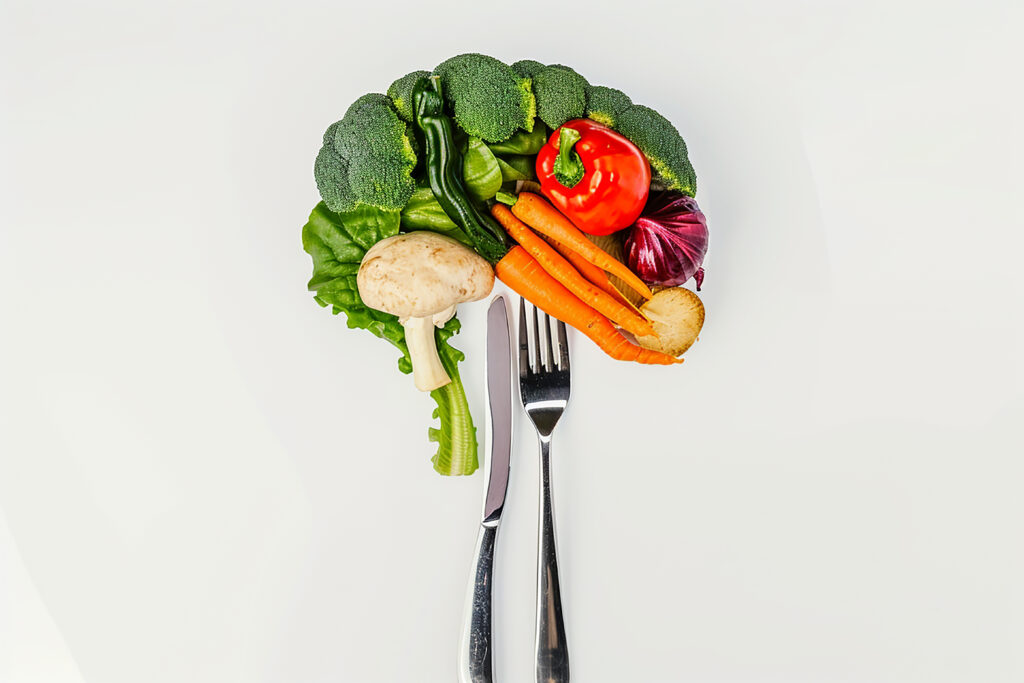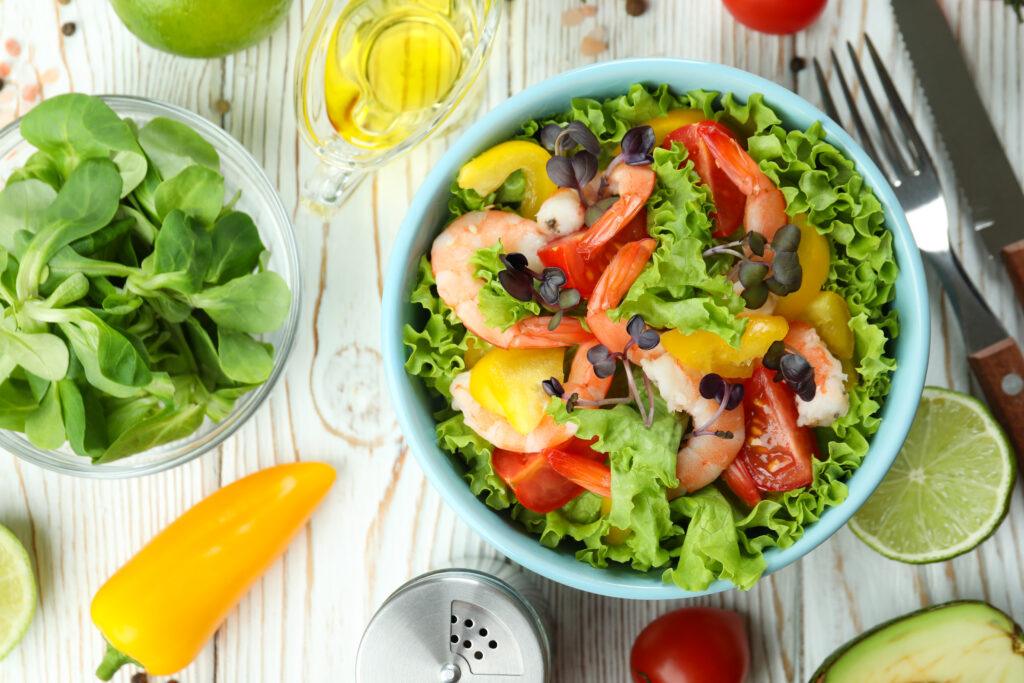Are the foods on your plate powerful enough to tame the fires of menopause? Women approaching 51 often face changes that affect their wellness, from sleep to bone strength. Diet changes can help ease symptoms like hot flashes and improve sleep. But how can your diet change your menopausal experience?
A 2023 review shows a strong link between diet and menopause symptoms. Whole grains and lots of veggies help manage symptoms. Omega-3 fatty acids and protein from various sources also help reduce menopause risks and discomforts. Dairy and animal protein might be key to higher bone density.
Every bite can affect your comfort or challenge during menopause. Menopause diet tips suggest eating certain foods for better health. Some suggest midnight snacking with tryptophan-rich dairy, while others recommend green leafy veggies for dinner. Does eating right really help ease menopausal symptoms?
Studies show diets rich in whole grains, dairy protein, and collagen peptides help with fewer symptoms and stronger bones. But, it’s important to limit ‘red flag’ foods like processed snacks, alcohol, and caffeine. The right diet could be a solution for menopausal symptoms. Can the right diet truly help with menopausal changes?
Understanding the Impact of Menopause on Women’s Health
Every year, over 1 million women in the U.S. start menopause, a big change in their health. It usually starts between ages 45 and 55. Menopause means no more periods and lower estrogen levels, causing many symptoms.
This change affects bones, muscles, and metabolism, making aging harder. Studies show it also harms heart health, with more risks of stiff arteries right after menopause starts. Eating right is key to handling these effects.
Black and Hispanic women often go through menopause earlier and more severely than white women. They need special diets and lifestyle changes. Eating a Mediterranean diet, full of plants, lean proteins, and whole grains, helps with hot flashes and keeps bones strong. Using healthy aging tips makes the change easier and keeps life fulfilling during and after menopause.
Staying active is crucial, with exercises like walking and lifting weights. It keeps you healthy and helps with weight gain during menopause. Eating fewer calories and avoiding too much sugar and alcohol also helps.
Hormone therapy can ease symptoms and improve mood, sex life, and sleep. But, it should be used carefully, as it doesn’t prevent heart disease.
In conclusion, knowing how menopause affects women’s health helps us find the best nutrition and lifestyle changes. By focusing on menopause nutrition and aging well, women can make this big change easier and healthier.

Diet Changes to Ease Menopause Symptoms
Going through menopause can be tough, but eating right can make a big difference. Eating certain foods is key to handling the changes your body goes through. Experts say you should get 8 milligrams of iron and 21 grams of fiber each day. This helps with digestion and keeping a healthy weight.
Eating well is not just about picking the right foods. It’s also about how you balance them. Make sure fats make up 25% to 35% of your daily calories. Keep saturated fats under 7% to avoid weight gain. Also, keep cholesterol under 300 milligrams a day to lower heart disease risk.
Adding isoflavones from foods like tofu and soy milk can ease menopause symptoms. Also, getting enough vitamin D is important for bone health. Women over 51 should aim for 600 IU daily, and those over 70 should get 800 IU.
Eating more veggies and fruits can help with hot flashes and feeling down. Studies show that eating 4.7 grams of whole grain fiber daily can lower the risk of early death. Omega-3 fatty acids from flax seeds and chia seeds also help reduce symptoms.
Getting enough protein is crucial for muscle and bone health. This can lower the risk of age-related muscle loss. Pair these diet changes with exercise for stronger bones, a better mood, and overall health during menopause.

Nutritional Support Through Healthy Fats and Whole Grains
Healthy fats and whole grains are key for menopausal women’s health. Foods like fatty fish, flaxseeds, chia seeds, and hemp seeds are full of omega-3 fatty acids. These are great for reducing menopause symptoms.
Whole grains are packed with fiber and B vitamins. They help lower the risk of heart disease and cancer, which are big concerns for menopausal women. Studies show that eating like the Mediterranean diet helps manage weight gain and boosts energy during menopause.
Studies by Lovejoy et al. (2008) found that menopause increases belly fat and lowers energy levels. Adding whole grains and healthy fats to your diet helps with these changes. It also makes you feel better overall.

Research by Rees et al. (2022) stresses the need for doctors to know about menopause diets. This ensures they can give the right advice and support for senior women’s health. Eating enough healthy fats and whole grains helps manage symptoms and keeps women strong and healthy.
These foods do more than just ease symptoms. They also help with bone density, heart health, and overall energy during and after menopause. Following good nutrition advice, senior women can enjoy a healthier, more active life.
Phytoestrogens and Quality Protein: Allies for Aging Well
For senior women, phytoestrogen-rich foods and quality protein are key. They help during perimenopause and beyond. Phytoestrogens act like estrogen and can help keep bones strong and lower heart disease risk. Foods like soybeans, chickpeas, flaxseed, and green tea are great for women in menopause.
As women age, they often lose muscle and bone strength due to hormonal changes. This can start in the mid-40s and last for up to 12 years. Eating high-quality, lean proteins is important to fight this. Foods like collagen, found in meats and supplements, help keep bones and muscles strong.
Eggs, meat, fish, legumes, dairy, and quality protein powders are good choices. They help keep muscles and bones strong. This is key for senior women’s health and vitality.
About 80% of women feel their minds aren’t as sharp during perimenopause. Many also gain weight, especially around the belly. Eating phytoestrogen-rich foods and quality proteins can help. These foods support physical and mental health, helping with symptoms of hormonal changes.
So, a diet rich in these foods is key for aging well. It’s a great way for women to stay healthy and graceful as they get older.

